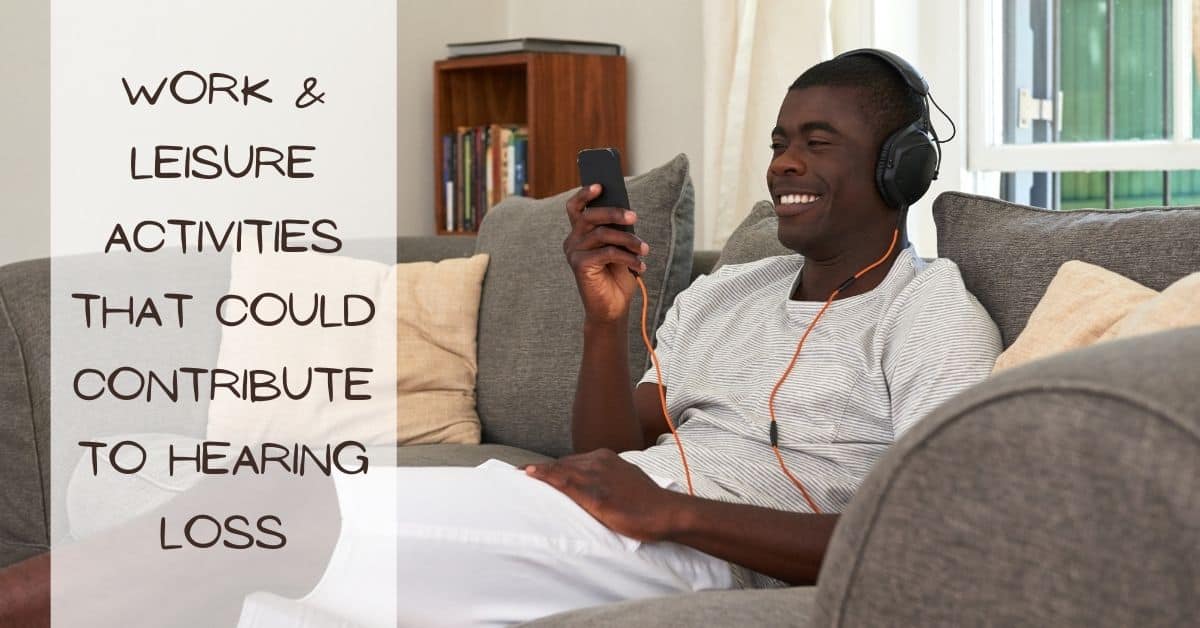One of the most common causes of hearing loss is exposure to very loud noise. Both work and leisure activities can be extremely loud, contributing to hearing loss. Noise can cause hearing loss for people of all ages. Loud noise will damage the cells in your ear and cause permanent hearing loss.
Noise Induced Hearing Loss
The loud noises you hear every day can cause hearing loss. This kind of hearing loss is called noise induced hearing loss. For example, the sound of heavy traffic or emergency sirens can be loud enough to damage your hearing.
Sounds over 85 decibels (dB) can cause hearing loss. A noisy restaurant, a loud air conditioner, or rush hour traffic are all around 85 dB. When sounds are 85 dB, you put a strain on your hearing, but you may not damage your hearing for several hours. As sound gets louder, hearing loss can happen much sooner.
When sounds are over 100 dB, like the noise inside a movie theatre or the sound of heavy equipment, you can harm your hearing health in just a few minutes. And when sounds are 120 – 140 dB, such as the noise of an airplane taking off, fireworks overhead, or the sound of a gunshot, hearing loss can happen in just a few seconds.
Work Activities and Hearing Loss
There are a number of noisy professions that can contribute to hearing loss. Construction workers, miners, farmers, and factory workers often work in very loud environments that can damage their hearing health. They work with loud equipment and heavy machinery that can be extremely noisy. These loud sounds continue for hours at a time, and without hearing protection these professionals will experience hearing loss.
Other noisy professions include law enforcement officers and emergency responders who are exposed to sirens and other loud noises. Less obvious work activities that can contribute to hearing loss include listening to very loud music during work. This is a hearing hazard for anyone working in a noisy restaurant, bar, music venue, or sports stadium.
Leisure Activities and Hearing Loss
People are more likely to protect their hearing at work, but they may forget to listen safely when they’re off the clock. You risk your hearing health when you attend a loud music concert or a sports event without hearing protection. These venues can be extremely loud, and you should protect your hearing when you’re at a concert or watching a game.
Other leisure activities that can contribute to hearing loss include playing in a band or community orchestra. Noisy outdoor activities like driving an ATV, motorboat, or motorcycle can also lead to hearing loss. Even mowing your lawn or using power tools in your backyard can lead to hearing loss if you’re not wearing hearing protection.
Earbuds and Hearing Loss
Do you spend a lot of time listening to music with your earbuds? Listening with earbuds and headphones can contribute to hearing loss. Many people use their earbuds to block out distracting background sounds. They turn up the volume on their music without realizing that this can hurt their ears. When you listen to music with the volume on high, sounds can top 100 dB! This extremely loud sound can lead to hearing loss.
How to Protect Your Hearing
Work safely and enjoy leisure activities by protecting your hearing. There are a few ways you can protect your hearing. Start by trying to reduce the volume of the noise. Turn down the volume on your music, choose a seat away from the speakers at a concert, and invest in quieter equipment.
Another important step in protecting your hearing is to wear hearing protection. You can wear foam earplugs at concerts, and wear earmuffs at work. Make sure you know how to wear your hearing protection correctly, and wear your hearing protection whenever sounds are dangerously loud.
Schedule a Hearing Test
Another way to protect your hearing health is through regular hearing tests. This will help you monitor your hearing health so you’ll notice as soon as there are any changes in your hearing health. Our team can help you monitor your hearing health, and give you tips for protecting your hearing during work and leisure activities.

